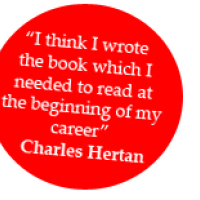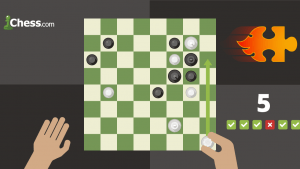
Why Your Brain Makes You Play Worse
Let's face it: 99% of us don't play chess as well as we would like to, and the other 1% needs to learn some humility. One of the worst feelings in chess is missing those clearly winning moves that would have ended the game, but instead you slide into a bad position and lose. Ugh! I hate that!
Why do we do this? Well, it might have something to do with how our brain works. Chess author and teacher Charles Hertan has used his 30 years of experience working with students to identify why we make these mistakes. He explains: "I decided to write a different tactics book, a book which focused on the mental processes involved in finding the killer move."
In his new book, Forcing Chess Moves, Charles Hertan explains how he discovered that by studying FORCING MOVES & using COMPUTER EYES you can overcome your HUMAN BIAS and win more games of chess! It's a revolutionary method for finding winning chess moves.
Why does HUMAN BIAS prevent you to find the winning move more often?
Your brain tends to disregard many winning moves because they are counter-intuitive or look unnatural. Charlie Hertan says: you can overcome your prejudice by developing computer eyes.
How do COMPUTER EYES improve your tactical vision?
A computer never rejects a move offhand. It doesn't come up with negative labels out of the blue, as we humans tend to do ('this move is too passive', 'it ruins my pawn structure'). A computer calculates first, then draws conclusions.
- It promotes analytical precision. 'Close enough' won't do.
- It helps to develop 'board sight', the ability to envision more clearly where all the pieces are
- It helps to overcome human bias and staleness in your thinking
- It helps you to enjoy the challenge of calculating difficult variations.
- Why study forcing moves FIRST?Forcing moves work better and quicker. When they work, they have the potential to transform the game, by leading to concrete gains.
- It saves precious time. Countless winning positions have been squandered by wasting huge amounts of time on obscure ideas, when a clearly decisive move was available.
- By reducing the opponent's options, forcing moves reduce the risk of calculation error.
New In Chess 2008, paperback, 382 pages, $28.95 / € 24.95


